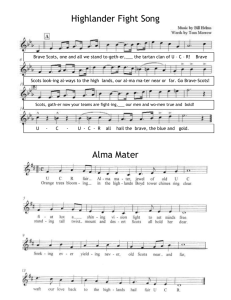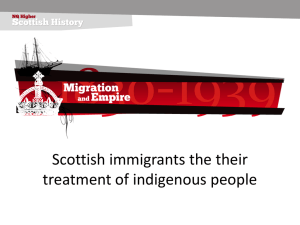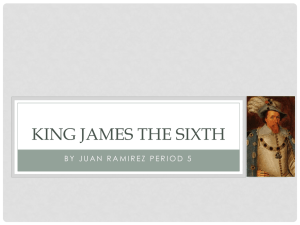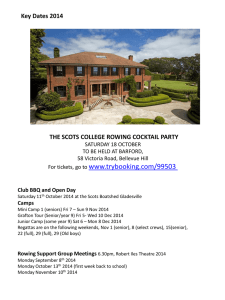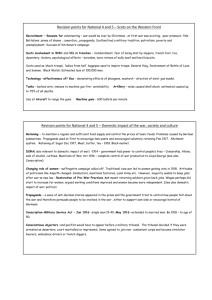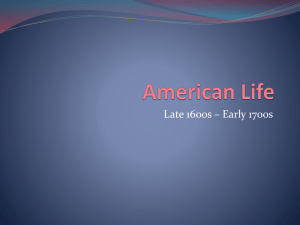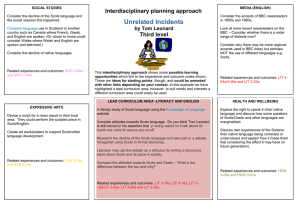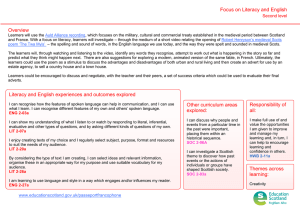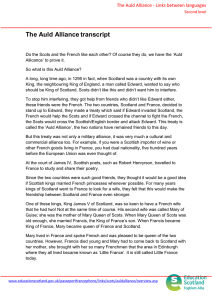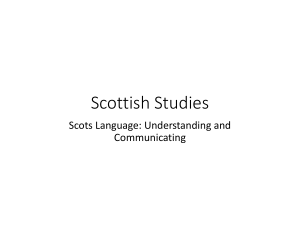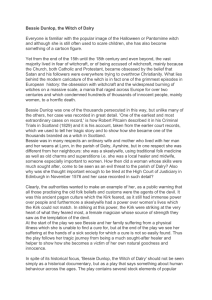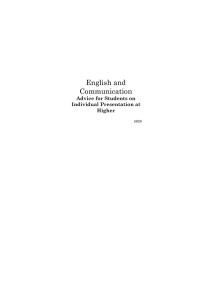Focus on Literacy Challenge Resources
advertisement
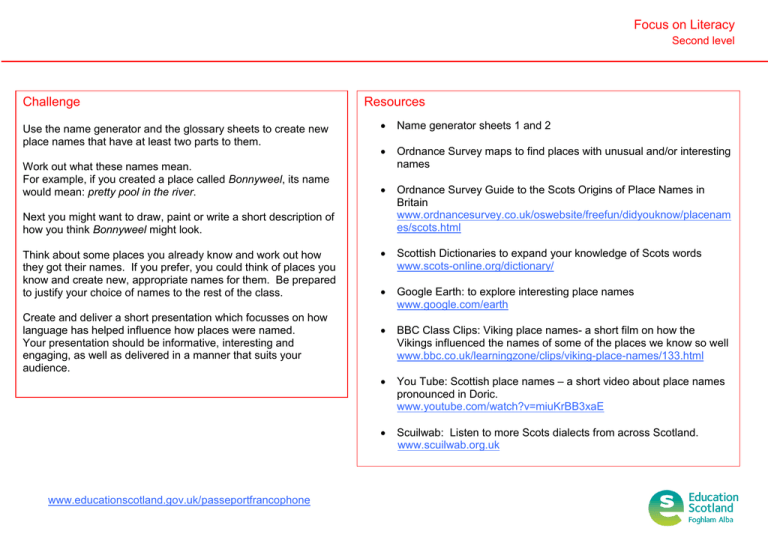
Focus on Literacy Second level Challenge Use the name generator and the glossary sheets to create new place names that have at least two parts to them. Work out what these names mean. For example, if you created a place called Bonnyweel, its name would mean: pretty pool in the river. Resources Name generator sheets 1 and 2 Ordnance Survey maps to find places with unusual and/or interesting names Ordnance Survey Guide to the Scots Origins of Place Names in Britain www.ordnancesurvey.co.uk/oswebsite/freefun/didyouknow/placenam es/scots.html Scottish Dictionaries to expand your knowledge of Scots words www.scots-online.org/dictionary/ Google Earth: to explore interesting place names www.google.com/earth BBC Class Clips: Viking place names- a short film on how the Vikings influenced the names of some of the places we know so well www.bbc.co.uk/learningzone/clips/viking-place-names/133.html You Tube: Scottish place names – a short video about place names pronounced in Doric. www.youtube.com/watch?v=miuKrBB3xaE Scuilwab: Listen to more Scots dialects from across Scotland. www.scuilwab.org.uk Next you might want to draw, paint or write a short description of how you think Bonnyweel might look. Think about some places you already know and work out how they got their names. If you prefer, you could think of places you know and create new, appropriate names for them. Be prepared to justify your choice of names to the rest of the class. Create and deliver a short presentation which focusses on how language has helped influence how places were named. Your presentation should be informative, interesting and engaging, as well as delivered in a manner that suits your audience. www.educationscotland.gov.uk/passeportfrancophone
